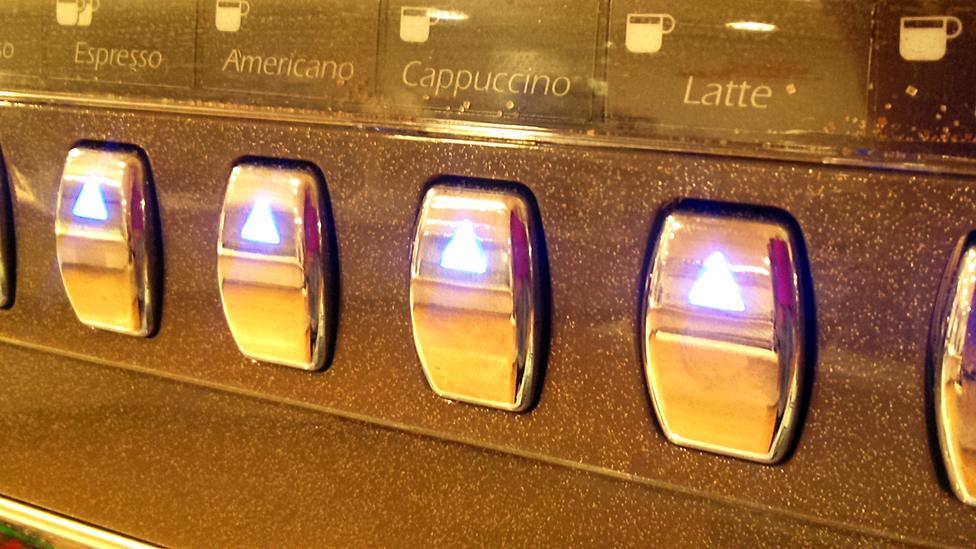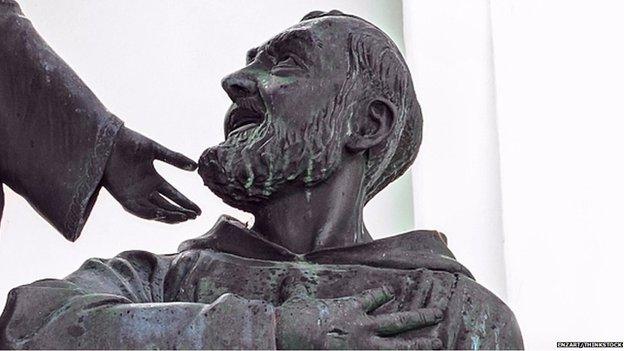The Vocabularist: How did cappuccino get its name?
- Published

The world has not abandoned cappuccino for flat white just yet - but it might be best to be on the safe side and tell some of the history of this familiar but exotic word, writes Trevor Timpson.
Cappuccio is an Italian word for hood. In Dante's Inferno those condemned as hypocrites must trail about endlessly in leaden robes, with low hoods - "cappucci bassi" - over their eyes.
The Cappuccini or Capuchin friars began in the 16th Century as a reform movement among the Franciscans, calling for a return to the hard, simple life of their founder.

The mystic Padre Pio (now St Pio of Pietrelcina), who died in 1968, is among the most famous Capuchin friars.
Roughly dressed and bearded, they got their name from children who shouted "scappuccini!" after them in the streets, a historian of the order wrote., external Literally that means WITHOUT hoods, though it had come to mean simply "hermits". The reformers were first officially named Cappuccini in 1535. They do have hoods.
Today there are some 11,000 Capuchins worldwide. Their brown tunics are probably the reason why their name was given to Capuchin monkeys, some of which have brown coats, and to cups of brown (as opposed to black) coffee, lightened by the use of milk, cream or even egg.
In Italian, cappuccino was being used to refer to coffee in the 1930s. A French writer records it in Venice in 1937 and La Stampa in Turin in 1939. But it was actually in German that "Kapuziner" was first applied to coffee.
Some link the term's origin to Marco d'Aviano, a Capuchin who was a confidant of the Austrian emperor Leopold I in the 1680s.
The first coffee shops in Vienna appeared about this time, but the term Kapuziner for coffee was not recorded till later. One example is a recipe for "Capuzinerkaffee" by the German "Wilhelm Tissot", published in 1790. The coffee is boiled, then mixed with cream, sugar and spices and boiled again before being poured over egg whites and yolks and whisked.
In café-loving 19th and early 20th Century Vienna, Kapuziner came to mean simply coffee with a little milk added.
Italian experts accept, external that German-speakers took their word and applied it to coffee, but insist that the cappuccino we know is an Italian drink - and they are right to do so. Modern cappuccino is the result of development through the 20th Century of machines to make espresso, to heat and to foam milk, and for most of that we have the Italians to thank.

The Vocabularist
•The fiery word 'brand' hits the spot
•The peculiar names of punctuation marks
•Is it OK to be a 'buccaneer'?
•How 'tunnel' went from France to England and back
•'What is radical about a radish?
Select topic "language" to follow the Vocabularist on the BBC News app

Subscribe to the BBC News Magazine's email newsletter, external to get articles sent to your inbox.